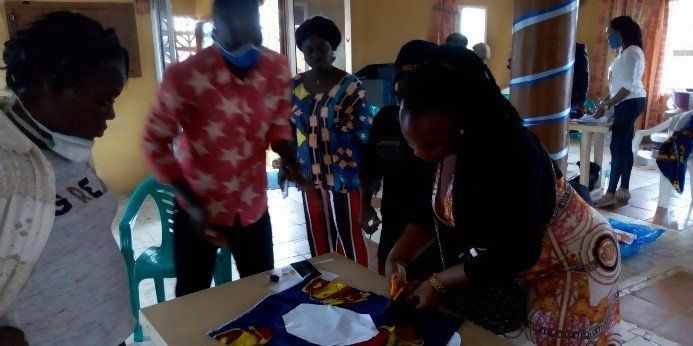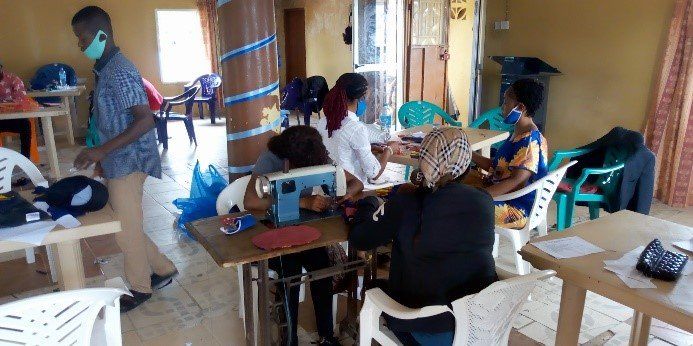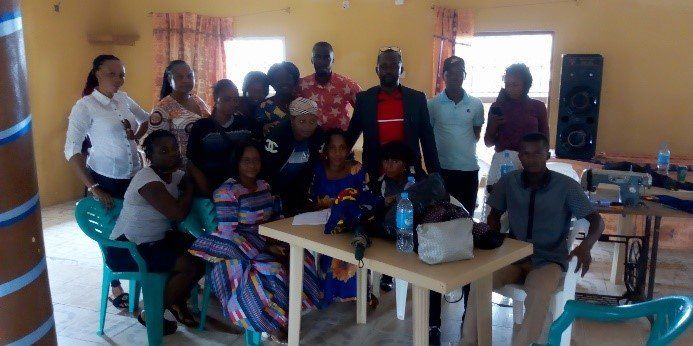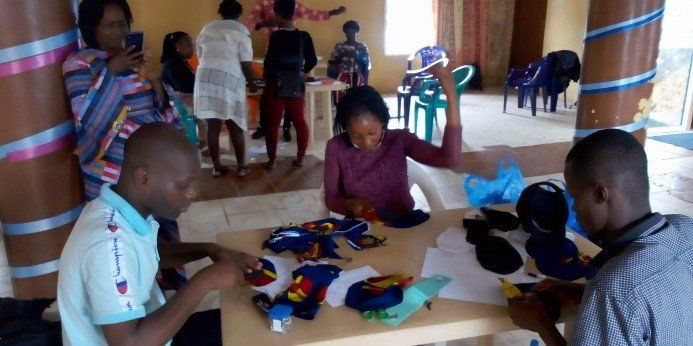Sierra Leone Positive Periods

Successes
Despite the COVID19 outbreak leading to the closure of schools affecting the implementation of this training taking place in schools, the teachers were determined to ensure the Positive Periods Program does not stop altogether.
On the day of the most recent training, 15 teachers from 6 schools in Makeni, participated actively in the training exercises in a safe and socially distanced class. They were trained in using both their hands and sewing machines to ensure that they help girls in their various schools in preparing the sanitary pads themselves. The teachers expressed delight on the refresher training as some teachers who were initially trained in their schools had left for other jobs and new teachers have been recruited, calling them to a training when government has issued a statement on the reopening of school in October this year was seen to them as a welcoming news.
Comparative benefits of the reusable sanitary pads for girls (Impacts of reusable pads)
During the training, it was estimated that preparing ten (10) set of pads cost less than £ 1 which is around Le 10,000 and could be used for minimum six (6) months if prepared well which means a girl and her family could save a minimum of £ 5 around Le 50,000 within that period instead of buying pads which is seen as a burden among poor households and those who could not afford tend to stay at home within their menstrual periods contributing significantly to absenteeism among girls.
The teachers also received training in menstrual health best practice so they can support girls who have health issues.
Teachers told us that the main benefits of the reusable pads are:
- Cost Effective for girls and women.
- The pads can be washed and reused.
- The pads are environmentally friendly.
- Increases girl’s confidence in themselves as they can make them for themselves.
- Accessible to everyone.
Feedback from teachers on the Day
Hassan. S. Kamara: “This is a concept that change the narrative of what we call a community self-project which empowers students, teacher and community women. I will continue to give the coordinator the support and I believe this training should take place every month until all girls have had the opportunity”.
Haja Z Tarawallie: “The disposable pads are expensive, can also cause health problem because of the chemical they use to prepare it. The Reusable sanitary pads are affordable, it can protect the environment and help to retain our girls in school”
Lucinda M. Mansaray: “The reusable sanitary pads are useful for both students and community women. They can sit comfortably and make pads and share the learning with their sisters and friends”.
Mariatu Sesay: “I will make sure I educate the community women on this reusable sanitary pads making”.
Ibrahim S. Sesay: “As a male teacher and also a father, this reusable pad is very helpful it has lessened the burden on buying the disposable pads monthly because my wife is now using it. I will also help to educate other girls and women”.
Ahmed S Faroh: “we all have a responsibility to support girls school by way of supporting them with the skills and knowledge by creating a safe environment for their personal hygiene and reduce their 50 days’ absenteeism”







